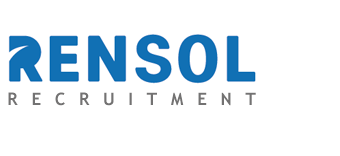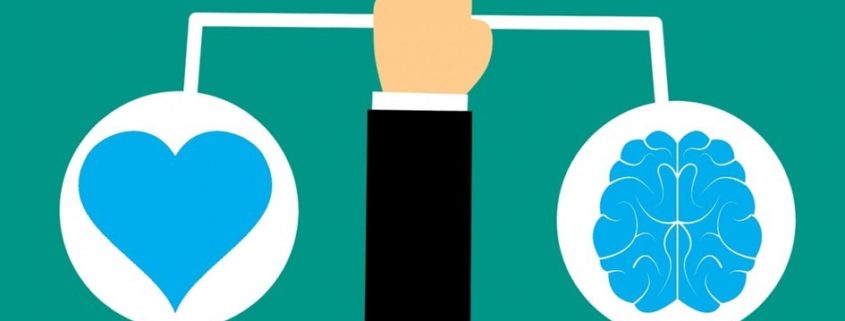Emotional intelligence (EQ) has been an important topic in business and organizational leadership for decades. It’s equally important in the health care business. Health care administrators can develop their own EQ skills, and they can also promote EQ in their organizations via employee training. These industry leaders will discover that EQ allows better relationships between colleagues and patients while also improving overall organizational performance.

Why Emotional Intelligence is Crucial in Health Care
What is Emotional Intelligence?
Psychology professors John D. Mayer and Peter Salovey coined the term “emotional intelligence.” They defined the term as “the ability to accurately perceive your own and others’ emotion; to understand the signals that emotions send about relationships; and to manage your own and others’ emotions.”
In 1998, psychologist Daniel Goleman noted the connection between EQ and business leadership, specifically citing self-awareness, self-regulation, motivation, empathy for others, and social skills as the link’s key components. In 2013, Goleman used neuroscience research to demonstrate how leaders can build each element of EQ by learning better ways to focus their attention.
How Health Care Administrators Hire People with EQ
Health care administrators that seek high-EQ employees see it as a valuable piece along with education, certification, and technical skills. They’ll evaluate EQ by using behavioral event interviewing tactics to see how prospective employees handled challenging experiences in previous jobs. They’ll also contact the candidate’s references to obtain firsthand insight into their people interaction skills.
How EQ Benefits Health Care Professionals
EQ lowers stress and burnout of health care professionals in several ways. It improves communication, yielding better doctor-patient relationships. It provides understanding to a patient’s emotional reactions to a treatment, which leads to higher levels of patient satisfaction. Additionally, it leads to increased job satisfaction, and it also leads to improved leadership quality, which can result in better team effectiveness and motivation.
The Key Skills Administrators Need to Develop
How Administrators can Develop EQ to Become Better Leaders
EQ skills fall into two areas. The first area is personal competence, or the ability to understand and express oneself. This skill requires emotional self-awareness, respecting and accepting oneself, and a commitment to self-improvement. It also involves having an assertive self-expression of emotions, proper stress management, a capacity to stay optimistic, and being able to adapt behavior and emotions in unforeseen circumstances. Additionally, the skill is defined by an ability to control impulses.
The second area is social competence, which is the ability to manages relationships. This skill requires empathy, effective and compassionate communication, and social and organizational awareness. It also requires the capacity to manage conflicts, the ability to inspire and motivate through leadership, and being able to be a coach and mentor. Additionally, the skill is defined by having a sense of social responsibility.
Conclusion: How Technology Can Help
Artificial Intelligence in Health Care Statistics
The healthcare AI market is projected to rise from around $663.8 million in 2014 to around $6.66 billion in 2021. The U.S. health care economy will potentially save an annual amount of $150 billion because of the AI applications projected to be in healthcare by 2026.
These applications can serve a diverse number of purposes. From a security standpoint, AI can help with fraud detection and cybersecurity. AI can also be applied to help nurses and staff by reducing dosage error reduction, providing administrative workflow, and becoming virtual nursing assistants. They can also help out in advanced capacities such as robot-assisted surgery, providing automated image diagnosis, issuing preliminary diagnoses, and identifying clinical trial participants. AI units can all be connected with each other, which could provide cohesion.
EQ and AI: What’s the Difference?
EQ and AI are two wholly different concepts. AI is defined as a branch of computer science that focuses on allowing machines to solve problems and perform tasks associated with human intelligence. EQ, on the other hand, is a concept defined by the understanding of the emotions of the self and of others to foster personal and professional relationships.
The Potential of AI Technologies and Emotional Intelligence in Health Care
When combined, AI and EQ could advance healthcare in remarkable ways. It could make the assessment of a patient’s moods and feelings through speech cues, inflections, and gestures possible. It could also make it possible to detect depression and emotional wellness through vocal tone. Additionally, it could ease the stress of patient clinical trials by enabling real-time feedback. Overall, it could create a better customer experience by automating intake and discharge processes.
IBM’s Watson has provided a glimpse into this combination. The AI system can potentially match cancer patients with available clinical trials, medical therapies, surgeries, radiation, and supportive care. This could free up physicians, so they could spend more time providing care to patients.
The Importance of EQ
The relationship between EQ and leadership will continue to be a valuable asset for the success of health care organizations. Leaders and employees at all levels stand to benefit from adding EQ to their repertoire of professional skills.

Upon finishing a journalism degree with flying colors, he has discovered his niche as a freelance journalist in a health and lifestyle journal, a travel magazine, a science blog, multiple news websites, various advocacy blogs, and a social entrepreneurship network. His innate affair with writing eventually brought him to the business of recruitment and human resource. A writer and an advocate at heart, serving people through his capacity for words has been his passion.




